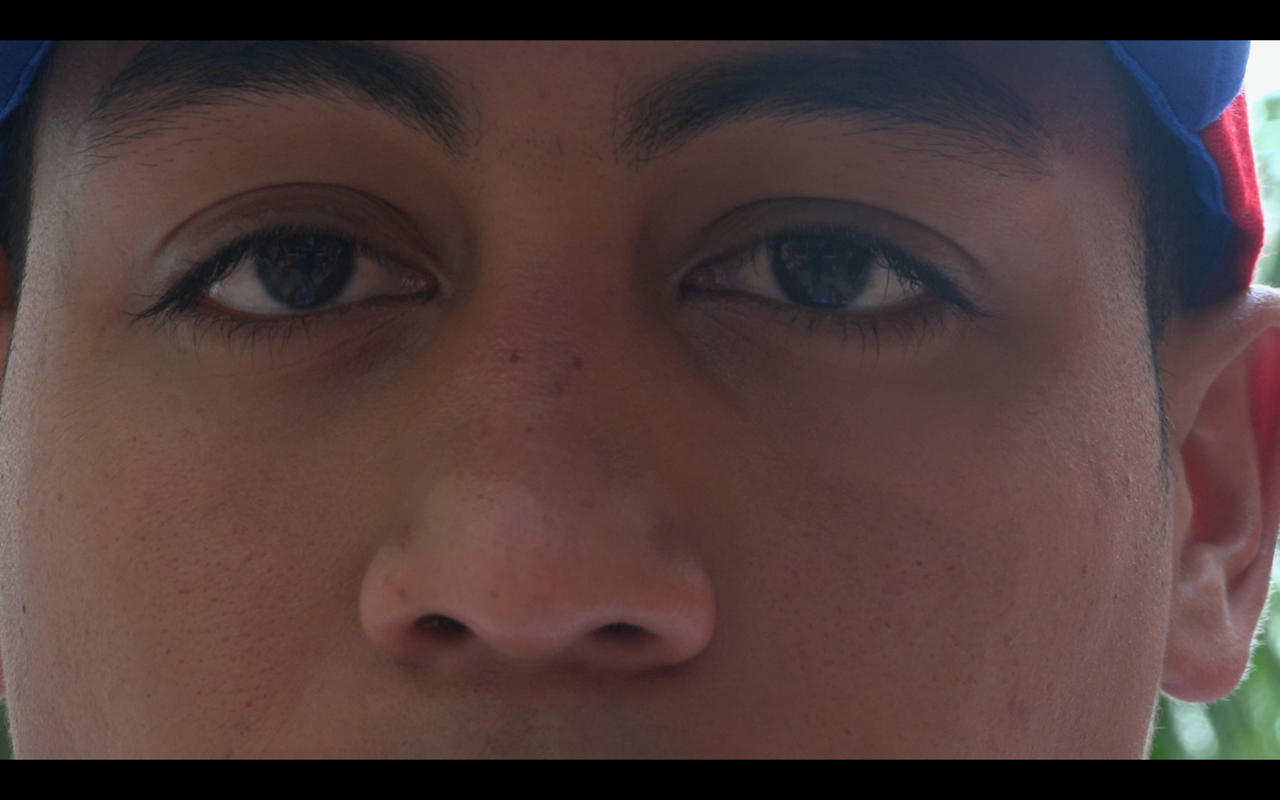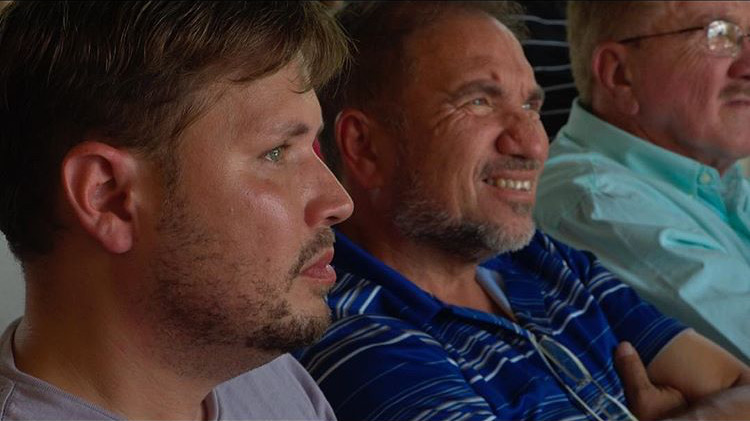
News
When Professors Speak Out, Some Students Stay Quiet. Can Harvard Keep Everyone Talking?

News
Allston Residents, Elected Officials Ask for More Benefits from Harvard’s 10-Year Plan

News
Nobel Laureate Claudia Goldin Warns of Federal Data Misuse at IOP Forum

News
Woman Rescued from Freezing Charles River, Transported to Hospital with Serious Injuries

News
Harvard Researchers Develop New Technology to Map Neural Connections
Striving for Divine Power in Darkness
Sundays were Luciana’s favorite days. In her memory, the most important events have always happened on Sunday.
The Sunday her first daughter was born, Luciana asked the nurse in her miniscule hospital room for a Bible and took mass there, eyelids half open and undulating between the reality of starched bed sheets and the hazy lighting of her unconscious.
Her mother died on a Sunday, worn wood rosary beads trembling on parched, diseased lips as they sang in croaking melody her final song of penitence. Just 15 years old, Luciana still remembers feeling the veins in her small hands, trying to find God in the blue green branches stretching across her mother’s holy skin.
Sundays. Her mother died mourning the life of a bastard child beginning and her daughter choked her first breaths while a breathless girl was born in the room next door.
Death to birth to passing to resurrection, together in a dizzying cycle.
This Sunday, Luciana sits in the fourth pew from the front, left side, of Our Lady of Guadalupe in Doral, Florida. She clutches her mother’s rosary, daintily manicured fingers swiping in a halting merengue over the araguaney wood.
“Children of God.”
Luciana’s hazel eyes, encircled by thin laugh lines, stare raptly at the bald-headed man draped in ornamental white at the front of the church. She sees nothing else.
“Brothers and Sisters in Worship and in Venezuela’s Eyes.”
The church is filled with light, fluorescent beams intersecting stained glass mosaics and birthing fantastical shows of dancing color. They remind Luciana of the crisscrossing reds, pinks, and blues of the Iglesia de Santisima Trinidad in Caracas.
“Today we mourn our people as they wait in darkness after five days. We pray that God illuminate their lives and end these blackouts. We pray for electricity, that God may provide for them what the dictatorship takes. The Lord tells us—"
God whispers and, before Luciana can tear her eyes from Padre Rivera, the church goes dark.
Luciana’s first thought is that she has gone blind. She blinks, clutches her rosary tighter, and then registers the chaos surrounding her.
Screams melt into sobs melt into babies’ warbled cries until everything intertwines in a sickening audial portrait, notes of tortured ghouls and wailing mothers the same in a landscape suggesting coupled brushstrokes of Dali and Goya.
“Maria? Maria, dónde estás?!”
“Coño, esto es, es el final del mundo.”
“Dios, por favor, no hagas como en Maracaibo.”
Luciana stumbles to her feet, hands reaching out to hold the wooden pews in front of her. She feels movement on all sides, bodies pushing and thrashing and assaulting so she stops feeling where her hips begin and the woman’s next to her end, which is her hand, where is the rosary, God please, don’t let me lose this rosary, this is all I have, not my mother’s rosary.
There is a sound like a firecracker and then, the heat comes. Heat so heavy it weighs on Luciana’s shoulders, a cross made of her country’s sins, heat that rivals the worst days in the barrios of Petare and tells Luciana at once where she is. The thought stands more solid than any she has ever had.
Caracas once again.
On her left, Luciana hears the crashing of glass and men’s strained voices. There are curses and leaping yells, sound of desperation so grotesque she can feel the stretched veins and splintering vocal chords.
More screams, feminine, and a litany of “no”s. Somewhere, Luciana swears she can hear the beginning of a plea, to God or to looters or to the deity that unites both, as a man rattles off facts faster than the best radio host.
“Please, please, we’ve had this store since 1975, we’re never looking for trouble, please, I have a daughter and a granddaughter, please, this is everything I have, I —”
The group of men’s voices, hyenas with snapping jaws, crash and rise, and the lone objector goes mute with a thud.
On her right, a voice wavers like a candle in its last minutes of flame. It is riding waves of melody, unsteady sailboat in search of music but always falling short as the hull runs ashore on the dried seas of its dehydrated body. Luciana clutches her pew harder, standing still and straight while surrounded by motion in some kind of sick miracle.
The voice crests and finally, she can make out the words.
“Yo nací en esta ribera del Arauca vibrador, soy hermana de la espuma, de las garzas, de las rosas y del sol.”
The voice repeats the verse and is joined by another, incoherent and hungry and yearning. A cry rises in pitch and volume and Luciana tries to make out the llanero lullaby, only single words trickling out before being drowned by the insistent lament of a child destined for death in the throes of starvation.
Luciana pushes herself to find the melody again.
Yo nací en esta —
Child’s cries grow and become the frenzied pants of the hyena men.
Yo nací —
Find the melody, Luciana.
Yo —
Zigzag laughs blend with the sounds of crashing glass, the baby’s cry underscoring all in a frantic dissonance that give Luciana death, only death, where is the birth, it is Sunday, death always comes with birth, where is it God, please, how can you give me a country constantly dying, how much death can I take before I follow in suit, diving into hyena screaming jungles, plagued by bursting bellies of air and colectivo guns prodding where they shouldn’t and darkness, stretching darkness, where are the lights, when will they come back, too much heat, heat and darkness and pain and hell.
Another firecracker yell and then, silence.
It is no longer hot and she is no longer in hell. As Luciana registers the concerned faces hovering over her, feels the carpeted ground of the church beneath her spine, she wonders if Sundays will ever be her favorites again.
— Contributing writer Carla E. Troconis' column, "Ni Aquí Ni Allá," fictionalizes political developments in Venezuela from the past year through the eyes of the diaspora.
Want to keep up with breaking news? Subscribe to our email newsletter.



